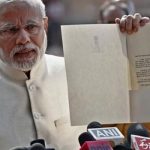
Twenty-five years ago, as many Indians flew in a year as they do in a month now. That may sound like a measure of economic prosperity. Only two state-owned airlines had held half of the domestic aviation market then. In March this year, 57% of the 13 million tickets that were sold were booked with only one private airline.
India’s economy has grown faster ever since it turned to capitalism—and opened its doors to globalization in 1991, but state-controlled sectors have not seen much of the strong competition that gives consumers wider choices, besides improved and cheaper goods and services. India’s 1% rich now own more than 40% of the country’s total wealth and the poor share only about 3%. This inequitable distribution of wealth needs introspection on how and why things have taken such a turn.
India is now poised as the fastest-growing economy in the world. But, by leaving its poor hordes straggling way below the poverty line behind as these numbers indicate, it has now become a bottomless pool of lost and forgotten souls.
Nearly two Indians are pushed into the dark abyss of poverty each second, caught inextricably between the devil and the deep, blue sea of spiralling prices and joblessness. India’s 350-million-strong population, ranked a dismal 107 out of 121 nations in the last Global Hunger Index, faces serious food insecurity.
Economists Arvind Subramanian and Josh Felman have pointed to the growing weight of the ‘2A’s—businessmen Mukesh Ambani and Gautam Adani—as proof of “extraordinary concentration of economic power” in the hands of a few. Former deputy governor of the central bank Viral Acharya has expanded the study to include the Mumbai-based Tata Group, cement and aluminium king Kumar Mangalam Birla, and telecom tycoon Sunil Mittal. In 30 years, the influence of the top five non-financial groups has grown by 8 percentage points, while the next five business groups have lost about the same amount. Taken another way, the Big-5 expanded at the expense of not only smaller companies, but also the next biggest ones, according to a recent paper by Acharya.
In India, dominance and supremacy is being wrested, or acquired, in indigenous industries. Only Egypt, Sudan and Venezuela have higher import tariffs than India. This gives India’s established domestic giants more negotiating clout over the country’s 1.4 billion customers.
From aviation and telecommunications to ports, airports and power, it seems that, in India, the states are set to lose control in the natural course, followed by the rise and fall of all but one or two oligarchs who beat other rich moguls. Wealthy Nusli Wadia’s Wadia Group holds charge of Go First, which recently filed for bankruptcy. Wadia’s Go Airlines is the third high-profile carrier to discontinue operations in the past 11 years even as the battle for survival hots up. The joint venture between Vodafone Group Plc and Birla, the commodities tycoon, is barely keeping its head above waters.
The most noticeable effect of the unbalanced and skewed competition is a rise in prices, but the effects can take years to show. India now has the fifth-lowest cost of data in the world—a direct result of Ambani’s seven-year effort to get a bigger piece of the market pie by getting rid of competitors. Only Ambani’s Reliance Jio Infocomm Ltd and Mittal’s Bharti Airtel Ltd are left in the fray where earlier almost a dozen players existed earlier. Data fees may stay low while the two biggest players roll out their 5G networks, weaning consumers away from Vodafone’s struggling joint venture. Then, they might go up again as Ambani’s digital business, Jio Platforms Ltd, gets ready to go public.
In India, acquiring stakes in competitors’ businesses is no guarantee of survival. Both Jet Airways, which acquired budget carrier Air Sahara, and Kingfisher Airlines, which acquired Air Deccan, declared bankruptcy. The Tata Group owns a majority stake in two local joint ventures—Capital ABhd’s AirAsia and Singapore Airlines Ltd. It has, however, begun to bring all its brands under one umbrella.
There are many ways that customer utility can be hurt. Vistara, a full-service airline owned by the Tata Group in Mumbai and Singapore Airlines Ltd, for instance, is joining with Air India, which Tata bought over from the government in 2021 as part of a deal to privatize the airline industry. With AirAsia India, the third airline owned by Tata, the group holds about 25% of the market. It has also put in an order for 470 planes, which is the largest order in the history of Indian aviation. India, which has more people than any other country, may soon only have Indigo and Tata as viable choices for local air travel—with ticket prices being arbitrarily sky high! (IPA Service)
(The author is a Defence, Aerospace & Political analyst)
The post Competition In The Time Of Neo-Liberalism In India Under Narendra Modi first appeared on IPA Newspack.


